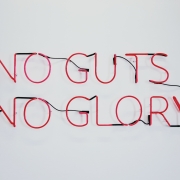The Art of Living
Written by Megan Bayles Bartley, MAMFT, LMFT
“All the art of living lies in the fine mingling of letting go and holding on.” -Havelock Ellis
All relationships have a tension or delicate balance between aspects that we like and dislike or things that work well and are a challenge.
So too, do we tend to have multiple feelings or emotions of an event, say, the loss of a loved one. We are sad they are gone, yet relieved they are no longer suffering.
Yes, I love you, And sometimes I find you difficult to be around.
When we limit ourselves to dichotomous thinking, we miss the Rainbow of Options. Getting stuck in black/white, right/wrong, good/bad thinking sets us and others up for failure rather than success.
If we choose “right” then others are “wrong.” When our “right” doesn’t work out, we feel like we have failed.
If instead we look at the whole rainbow of options we could choose, we are limitless.
95% of the options may be things you would never actually do, but at least they are there for you if you need them.
This Rainbow of Options gives you more flexibility rather than keeping you rigid and binary. Much of mental illness can be due to rigidity while mental well-being can lie in the ability for have flexibility of thinking.
Think: Growth Mindset vs. Fixed Mindset!

















